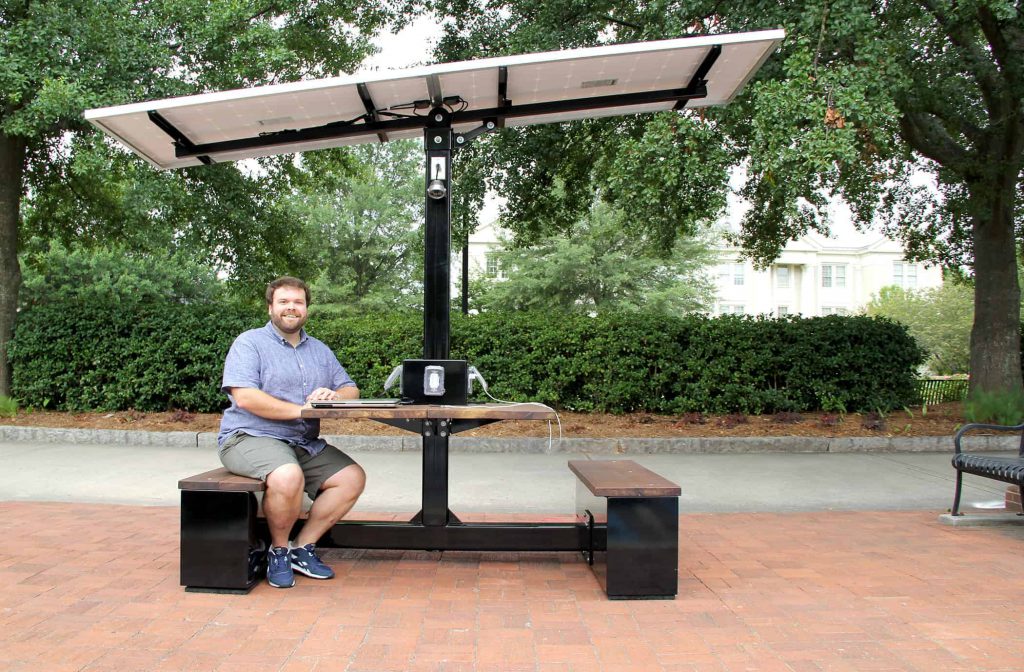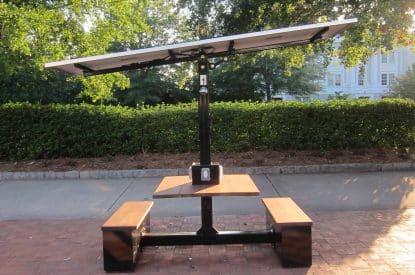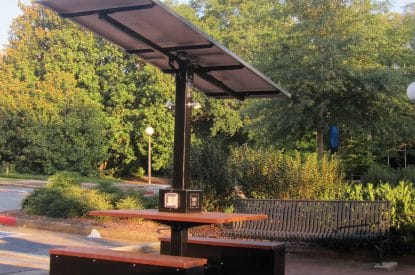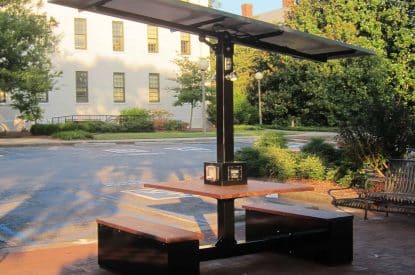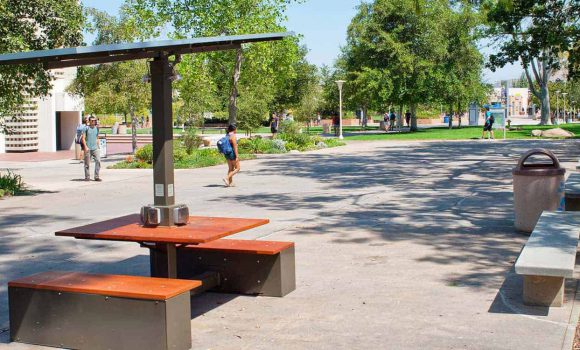When the University of Georgia received requests from the student body for an off-grid solar charging station, Kevin Kirsche, the director of sustainability, began searching for a reliable product that would help them achieve their environmental goals. “We wanted something that embodied our culture of sustainability with a visible, tangible renewable energy solution to an everyday need,” Kirsche explains.
The University’s initial plan was to design and manufacture their own table, but after inspecting the Sunbolt in person at the AASHE exhibition, Kirsche and his team felt that they had found the perfect medium to promote awareness for green energy and satisfy their need for an outdoor electric source for UGA’s students and faculty. After inspecting several similar products, Kirsche and his team decided that the Sunbolt, a solar table charging station from Carrier Class Group, LLC, was “strong and durable enough to last over time and very well suited for a campus environment.” Kirsche states after careful consideration the University opted for “the time, money, and convenience of using a proven product instead of fabricating [their] own design.” In addition, the aesthetic of the table was complementary with the campus setting, which further endeared the team to the Sunbolt.
The Sunbolt provides an outdoor workstation where its users can charge their electronic devices with off-grid and eco-friendly energy. The solar panels use a 530-watt solar array and a 225-amp hour gel cell battery to charge up to 150 hand-held devices a day. The table also includes LED lighting for continued use at night.
Brian Holcombe, the senior anthropology major who was awarded the Campus Sustainability Grant, sits and charges his laptop and phone at the table. According to Kirsche, students had brought up the idea of having solar panel charging stations several times in the past. UGA’s Campus Sustainability Grant program and supplemental operations funding provided a means to make the student body’s request a reality.
Mr. Jim Innes, the CEO of Carrier Class Green Infrastructure comments, “Our client’s satisfaction is of the highest importance to us; we want to ensure that they are reaching their sustainability goals. I was happy to be on site to ensure the installation went smoothly and we are excited to work with the University’s sustainability team again in the near future.”
On the ease of working with CCGI, Kirsche comments, “It was great having Jim on site for the installation. He is very passionate about the product.” He also mentioned that the rest of the CCGI team was very supportive and that he liked being able to work with them up front.
“Students and faculty enjoy being able to work on their assignments and catch up on emails at the tables, instead of just waiting for their devices to charge,” remarks Kirsche. The table has adequate room for four people to comfortably complete their work while their devices are charging.
This is the first solar charging station to be installed at a university in Georgia and Kirsche has already been contacted by several other institutions in the area about his experience. Kirsche commented that the feedback from the students and staff has been overwhelmingly positive so far and that they are investigating opportunities to install more tables across the campus.

